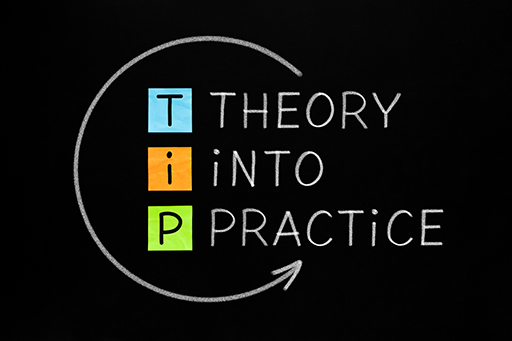1.2 Practice Assessor
Key principles of effective student nurse assessment:
- Practice Assessors for student nurses must be registered nurses with appropriate equivalent experience for the field of nursing practice the student nurse is studying.
- Practice Assessor must undertake suitable preparation to prepare practitioners to become practice assessors for student nurses and midwives.
- A nominated Practice Assessor can be assigned for a single practice placement or a series of placements.
- Student nurse associates can be assigned either a registered nursing associate or a registered nurse as their Practice Assessor.
- Practice Assessors are expected to raise appropriate concerns about student progress regarding student nurse conduct, competence or achievement if required.
- Practice Assessors will receive support to undertake this role.
Watch this animation from Health Education England (HEE) (2020) explaining more about the Practice Assessor role: Nursing and midwifery: Practice Assessors [Tip: hold Ctrl and click a link to open it in a new tab. (Hide tip)] .
According to the NMC: ‘Practice assessors assess and confirm the student’s achievement of practice learning for a placement or a series of placements…the practice assessor assesses the students overall performance for their practice learning, taking account of whether or not the relevant proficiencies and programmes outcomes have been met, and if they display the required values of their profession’
Activity 2
Read and reflect on the following mini case studies and consider how you would support the student in your role of practice supervisor or practice assessor in these scenarios. You can write your answer in the box below the scenario.
Scenario 1:
You are a named Practice Supervisor for a level 1 student nurse. While attending your practice learning area the opportunity arises for the level 1 student to engage with a skill/procedure relevant to their learning outcomes, but the relevant theory has not yet been studied.
How would you as Practice Supervisor support the student with this learning opportunity?
Discussion
Ideally students and Practice Supervisors should plan learning opportunities within your practice learning environment and document these in the student’s Practice Assessment Document (PAD).
Opportunities for students to develop their learning for the skills/procedures outlined in Annex A and B can be somewhat opportunistic; the NMC outlines that there should be a focus on skills learned in practice rather than simulation when appropriate. Therefore, the student should be given support to engage with this learning opportunity.
Encourage the student to access the relevant theory if possible, via their theoretical component including accessing simulation learning in platforms such as clinicalskills.net.
Guide the student nurse to learning resources available in your practice learning environment including up to date policies and procedures relevant to your employing organisation.
Depending on the skill allow the student nurse to observe competent practice demonstrating the skill/procedure within your practice setting explaining the process used to ensure safe and effective delivery of the skill/procedure. Encourage the student to ask questions and, if the patient consents encourage the student to undertake the skill while supervised, using coaching and enquiring questioning of their rationale for their actions.
Simulated practice learning hours
The NMC responded to the COVID-19 situation to implement recovery and emergency programme standards. Recovery standard RN5 and RN5.1 required universities to ensure simulation-based learning opportunities and appropriate supervision for student nurses and RN6 (D) outlines the application process for nursing education providers to be approved to offer alternative methods of simulated practice.
Read more information about the use of simulation by accessing the following information from the NMC (2019): Simulation
The use of simulation to support practice hours is an active development which is changing month by month, therefore registered nurses need to ensure their knowledge about this topic is up to date by accessing current updates from the NMC website.
Scenario 2:
You are the named Practice Assessor for a student nurse undertaking level 2 of their nursing studies. The named Practice Supervisor has reported to you that the student nurse has been noted to be late for several shifts and at times is found to be more interested in their smart phone rather than what is happening in this practice learning environment. Other staff members and supervisors have commented that they feel the student nurse is not engaged with this learning environment.
How will you as a Practice Assessor support the Practice Supervisor and student in this situation?
Discussion
Concerns with behaviour or professionalism should be dealt with in a supportive and prompt manner therefore allowing the student time to improve before their final assessment.
Although the supervisor would be expected to speak to the student about these reported observations and provide feedback and/or feedforward, the practice assessor should check that this conversation has happened as the student may be unaware of staff concerns.
A supportive conversation should be undertaken considering the reasons why the student is late, this could relate to childcare issues, transport problems or other personal issues that you are unaware of.
Is the student using their phone due to problems at home or with caring responsibilities?
A conversation could elicit personal reasons why the student is finding this practice learning environment difficult to engage with, e.g. a relative could have previously been cared for in this practice learning environment which has invoked difficult memories.
Does the student have a learning difficulty that is affecting their ability to engage with their learning environment?
Is the student experiencing physical or mental health issues that are affecting their performance?
If the Practice Supervisor has spoken to the student and a problem is still apparent the Practice Assessor can arrange a tripartite meeting to explore the reasons for the student’s behaviour.
The Practice Assessor should communicate with the practice education team within the student’s organisation if they are employed as well as the Academic Assessor and/or University link lecturer so that they can help you develop an appropriate development plan.
Refer to the local university processes regarding supporting student concerns with practice.
A learning plan should be created linked to the NMC (2018c) seven platforms and the placement learning outcomes to help the student understand how they can improve. Using the seven platforms and learning outcomes should guide the student in identifying their own learning needs. Document the plan clearly, identifying realistic goals for the student to be able to demonstrate their learning. Set review dates for student progress.
Consider referrals to university disability services or support processes.
Advise the student on their progress, provide encouragement and recognise improvement as appropriate. Document the progress in the PAD.
When learning has been met record this clearly in the PAD.

